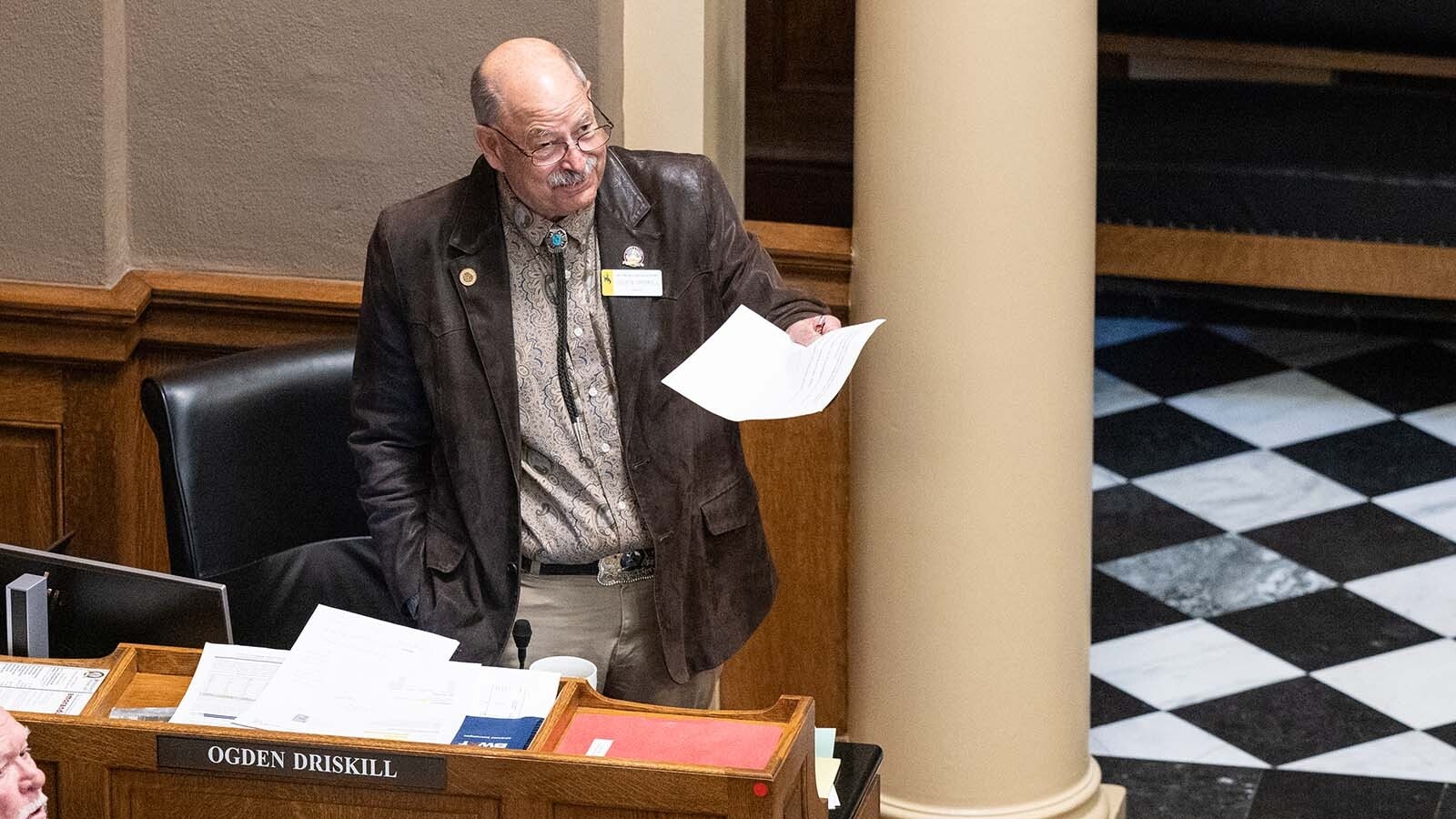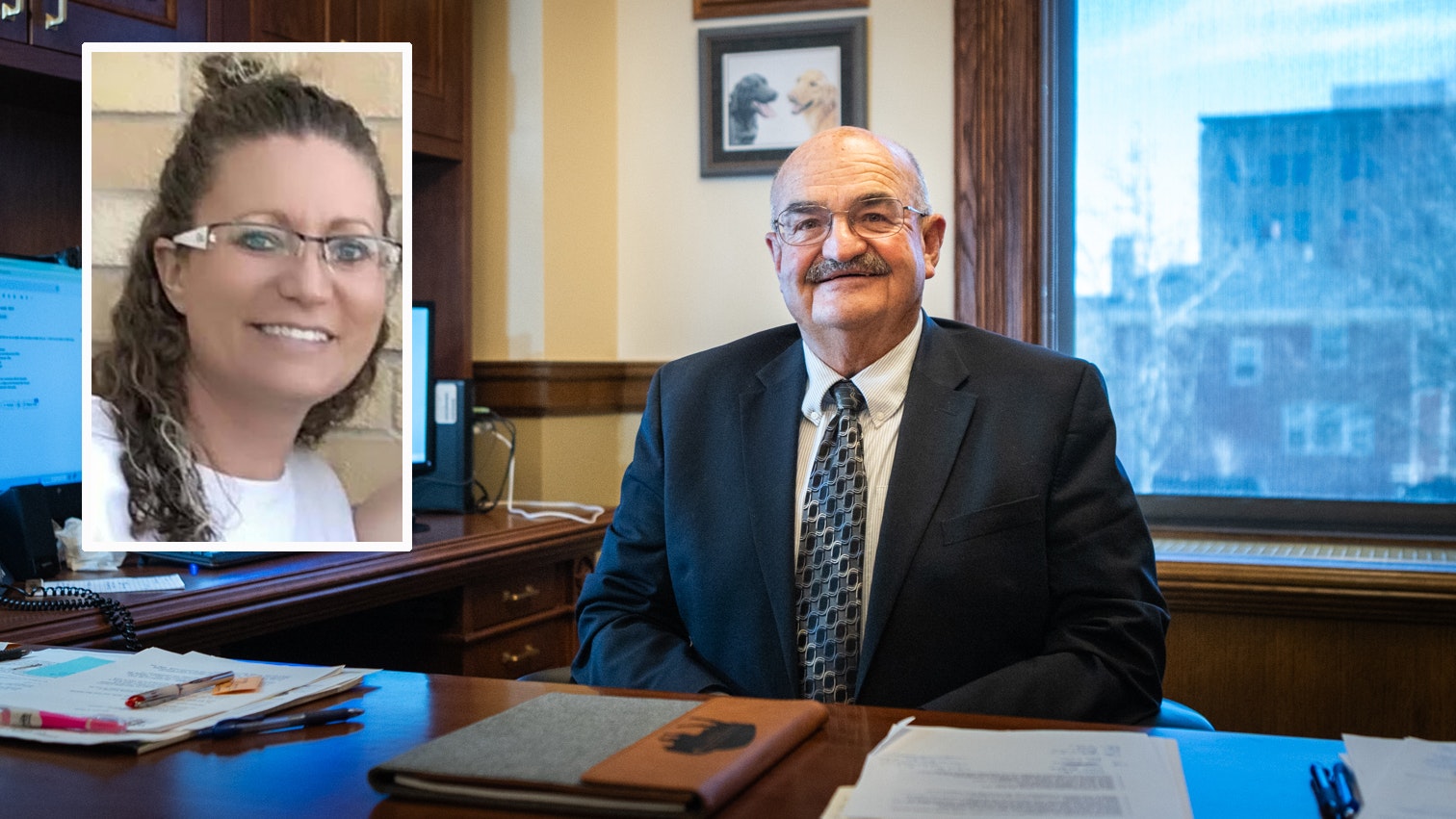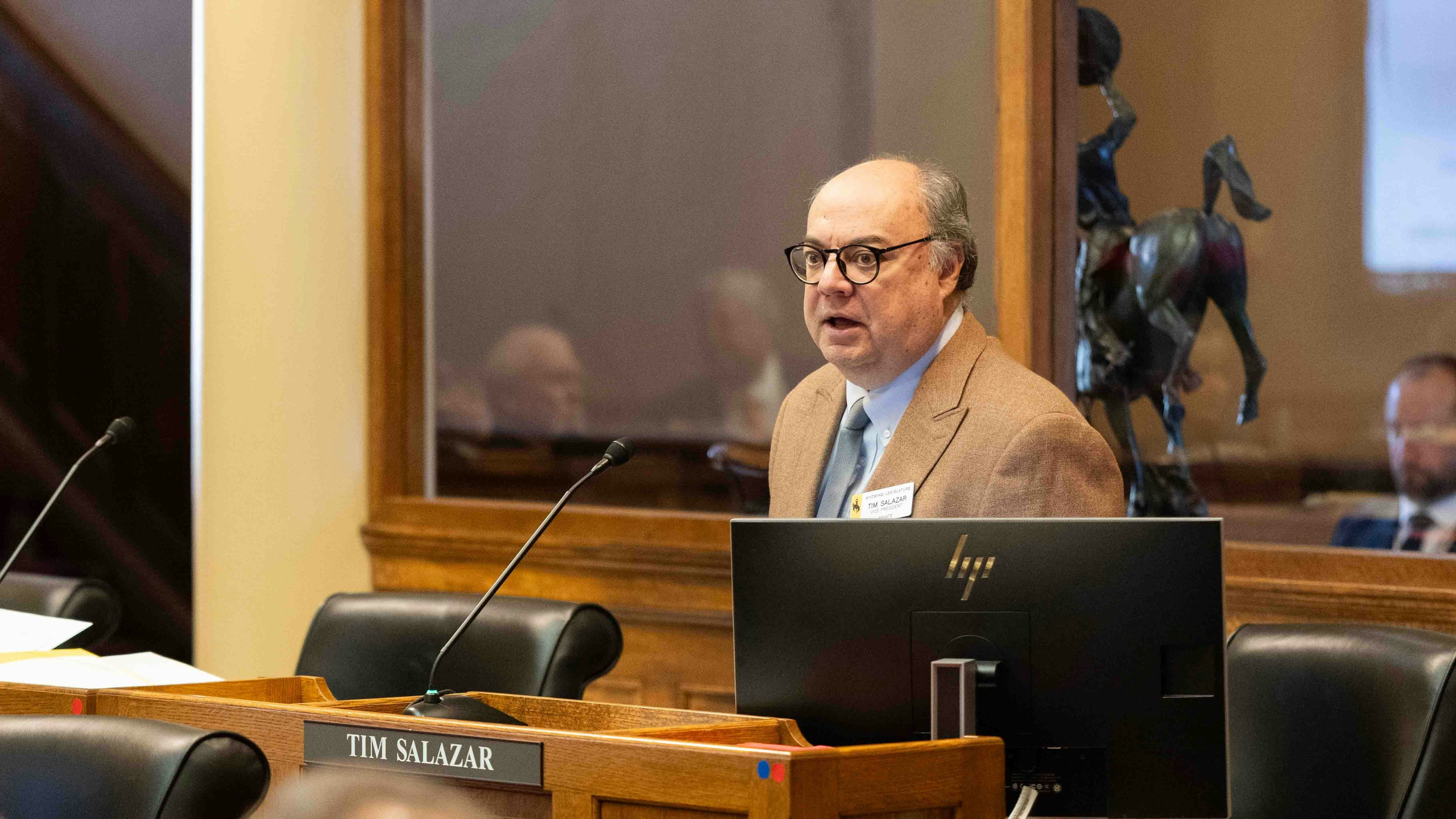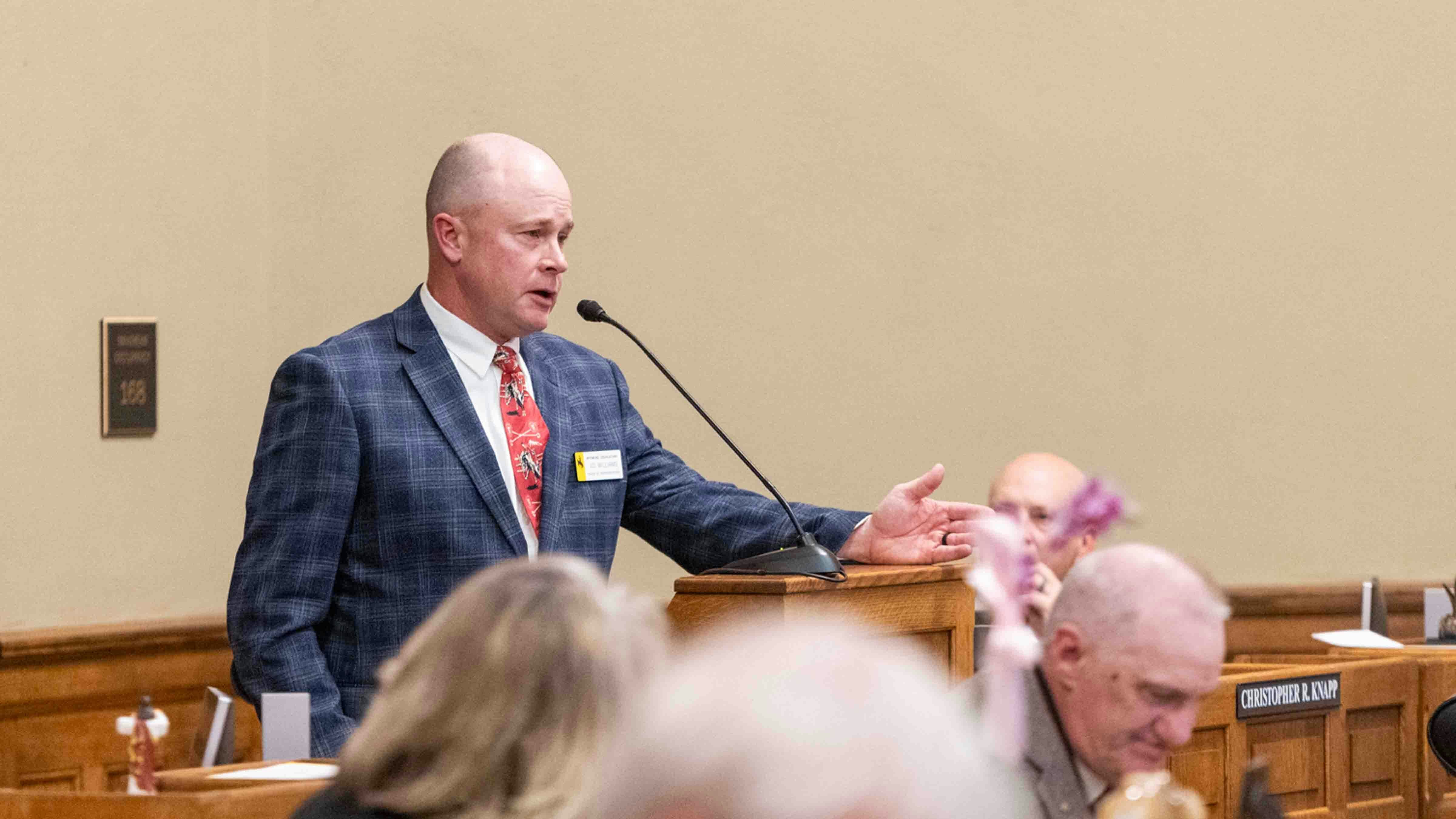In an informal 8-5 vote, a Wyoming legislative committee chose Friday to keep contemplating the banning of public money going to lobbying associations.
The decision came after, and in spite of, a parade of testimony from local officials such as mayors and county commissioners opposing the move.
Wyoming local governments can form associations that cost-share lobbying, training, research and other efforts. The Wyoming County Commissioners Association (WCCA), for example, often lobbies the Wyoming Legislature to protect county autonomy and preserve local revenues.
It also works with federal agencies and trains county commissioners on laws surrounding public servitude, among other endeavors.
The WCCA on Friday urged the Corporations, Elections and Political Subdivisions Committee not to revive failed efforts from this year’s legislative session to restrict public funds for lobbying.
The Wyoming Association of Municipalities, the Wyoming Association of County Officers and the Wyoming Association of Sheriffs and Chiefs of Police joined in that opposition.
They and the other detractors said local governments are best served by cost-sharing in their lobbying efforts, and that without the associations, the Legislature would lose out on the vital perspectives of many local governments, particularly small towns.
Proponents of the ban, conversely, said the associations’ paid staffers and facilities aren’t a good use of taxpayer dollars.
Rep. Ann Lucas, R-Cheyenne, asked the committee to revive a failed 2021 bill that would have banned the use of public money for lobbying altogether. That’s a step further than the failed 2025 bill that sought to restrict such funds.
Sen. Dan Dockstader, R-Afton, resisted, saying he doesn’t feel comfortable voting to revive a bill without the chance to review it.
Committee Co-Chair Cale Case, R-Lander, proposed a compromise: an informal poll on which committee members want to proceed with the general topic.
Eight raised their hands in favor.
Those are: Lucas, Committee Co-Chair Christopher Knapp, R-Gillette, and Republican Reps. Steve Johnson (Cheyenne), Gary Brown (Cheyenne), Paul Hoeft (Powell), Tony Locke (Casper), Joe Webb (Lyman) and Nina Webber (Cody).
The five who kept their hands down were Case, Dockstader, Republican Sens. Brian Boner (Douglas) and Bill Landen (Casper), and Rep. Mike Yin, D-Jackson.
It’s Raining Mayors
A parade of mayors testified alongside the Wyoming Association of Municipalities (WAM).
Particularly small-town mayors said they need the association to help keep them apprised of the hundreds of bills the legislature contemplates each year, relevant law changes and other issues that could affect them.
The city of Casper pays about $55,000 a year in WAM dues, while the town of Shoshoni reports a few hundred, WAM President Carter Napier told the committee.
Similarly, county dues to the WCCA vary by county size.
Napier said legislators benefit from local governments forming associations as well, because it streamlines the local officials’ majority position on bills into one voice rather than having all 99 Wyoming mayors try to lobby state lawmakers.
“You, too, are getting a real good bang for the buck as it pertains to the taxpayer dollars spent,” Napier told the committee.
Pinedale Mayor Matt Murdoch, who said he witnessed Marxist and oppressive regimes while living in Africa, said a ban on public money for lobbying could silent dissent and local voices.
“(From) my time in Africa, when I see people trying to quiet the dissenting voice, trying to quiet the local voice, it just irks the heck out of me,” he said. In Africa, regimes that tried that “wreaked massive havoc.”
Murdoch’s LinkedIn profile says he worked with an agricultural and theological training center in Benin, West Africa, toward equipping village leaders to be more productive and efficient. He serves as a WAM legislative committee board member.
Visibly concerned about the large amount of time the committee spent on the topic, Case remarked that the deluge of mayors on the committee was a sign of what would happen if the Legislature banned publicly-funded lobbying.
‘That’s All Nice’
Mark Koep, who chairs the Crook County Republican Party but spoke on his own behalf, urged the committee to consider the ban.
He said he found himself in the 2025 session in legislative committee meetings debating with associations for arguing against bills that members of those same associations from his own county supported.
“My taxpayers are paying for an association arguing against the will of the people in that county — and the local members in that county,” said Koep.
While the governmental association groups argue generally for local sovereignty and funding, they don’t always reach member unanimity. In the WCCA, for example, the threshold to take a public position is 70%, the group’s director said this week.
WAM generates more than $1 million in revenue, less than half of which is from dues, Napier had told the committee. That, coupled with the hundreds of thousands of dollars each group distributes as salary to its paid staffers each year, isn’t a good use of taxpayer dollars, Koep argued.
WCCA just paid off its building in Cheyenne, using public money.
“That’s all nice,” said Koep. “I would love for the taxpayer to fund my association fees and my company’s buildings — but I don’t get that benefit. And I simply am asking to cut out the taxpayer funding for these.”
Thermopolis Spat
Koep isn’t the first to raise qualms with groups like the WCCA.
Hot Springs County Commission Vice-Chair Bob Aguiar in recent days said he’d support cutting ties with the group, in light of the roughly $7,700 his county spends each year in dues and what he called a tendency within the group to grow government.
Hot Springs County Commission Chair Tom Ryan disagreed strongly, saying Hot Springs County would have to spend about $200,000 to recoup the same benefits the WCCA provides if it were to pursue those alone without cost-sharing with other counties.
Freedom Of Association
Beyond the ideological arguments, Yin raised a constitutional concern.
“This whole experience is a little mind-boggling to me,” said Yin. “You (groups) justify your existence to your members, right? They’re the ones that put in money. I don’t know why we’re even having this topic of you guys justifying your existence to us.”
It should be up to the local voters in each town and county to decide if they want their delegates to keep paying for lobbying — not up to state lawmakers — said Yin.
“Freedom of association is a constitutional right,” he added. “The idea that we’d abridge that for our own political subdivisions makes literally zero sense to me.”
This story has been clarified to note Koep spoke on his own behalf.





